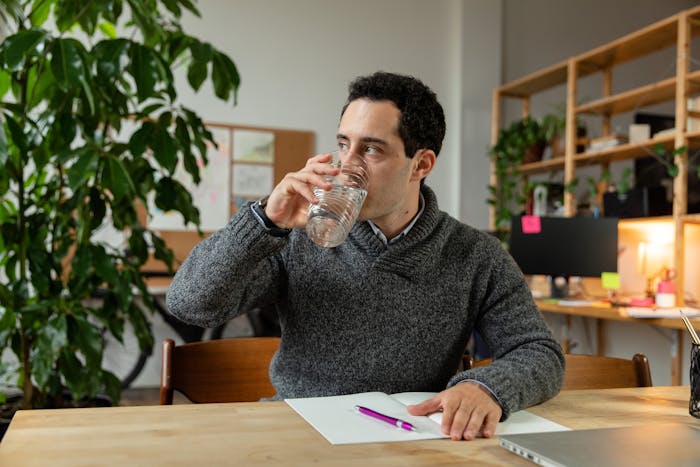Kidderminster has some good options for anyone who needs addiction treatment.
In most situations, one solution will be for the individual to choose a combination of medical options (for example drug and alcohol rehabilitation clinics) combined with some type of self-help group (for example Alcoholics Anonymous).
Across the UK, the abuse and misuse of drugs and alcohol is a serious social issue that sometimes does not receive sufficient attention.
If you live in Kidderminster, you know that there are local issues related to the misuse of drugs and alcohol too. Because of this, and like in other parts of the country, you can find drug and alcohol rehab in Kidderminster.
It is important to understand what the options are for drug and alcohol rehab in Kidderminster because drug and alcohol rehab is an essential part of the solution to the wider problem in local areas and across the country more broadly.
Therefore, if you are concerned about your use of drugs or alcohol (or if you are concerned about someone you know using substances) you should know what the options are for drug and alcohol rehab in Kidderminster.
You should also understand what drug and alcohol rehab in Kidderminster entails, what the challenges will be, and how they can be overcome.
In this, there’s a lot to explore. By reading below, you will learn about:
Please call our 24-Hour Helpline: 0800 140 4690

Researchers have found some common factors that span all addictions.
Daria J. Kuss’s research states that these 6 characteristics are: ‘mental preoccupation, escapism, neglect of personal life, tolerance, mood modifying experiences, and concealing the addictive behaviour’.
The striatum – the brain’s reward centre – is responsible for the good sensations we feel when partaking in an addictive substance or behaviour.
Gene-Jack Wang’s research supports this, with imaging studies showing the brain’s reward centre becomes active when under the influence, and even when experiencing a craving.

You might think you know a lot about drug and alcohol addiction. You might even think that you’d be able to spot someone who was addicted to drugs and alcohol – especially if they were a family member or friend.
However, a lot of our perceptions about drug and alcohol addiction are out-of-date and based on inaccurate stereotypes.
In reality, it can be difficult to spot the signs of drug and alcohol addiction in someone else.
Some people with an addiction to drugs and alcohol can even struggle to realise that they are dealing with the issue themselves. This is partly because there are lots of signs of addiction, and they aren’t always consistent.
Addiction will usually, however, come with a few factors that can be spotted no matter the substance of addiction.
One of the easiest signs to spot is a build-up of behavioural changes. Often, when a person is addicted to drugs or alcohol, their behaviour will begin to change as the addiction becomes more serious.
They might become more erratic and unpredictable, and they might start changing their usual routine, schedule, or activities in order to accommodate space for their addiction.
You could find that they become increasingly isolated from their friends and family, as they prioritise their addiction over maintaining important social contacts.
In the worst-case scenario, you may find that a person even begins to get in trouble with the law, as they start breaking the law in order to fuel their addiction.
Other signs can include an unexplained gain or loss of weight, exhibiting decreased memory, and decreased reliability. If the person also seems unable to maintain concentration and focus, this is another sign.
On their own, a lot of these signs don’t necessarily indicate that someone is living with an addiction to drugs or alcohol. However, if they start to form a pattern then this could quickly become a cause for serious concern.
Sometimes, spotting the signs of drug or alcohol addiction in yourself can be even harder than spotting them in someone else.
This is because, due to the stigma that comes with addiction, a lot of people are in denial when it comes to the extent and seriousness of their relationship with drugs and alcohol.
Recognising the fact that you are struggling can come with a lot of guilt, and it can seem easier just to ignore the issue and deflect conversations away from any problems you might have so you can simply avoid dealing with them.
Avoiding coming to terms with your addiction can also be a means of escaping feelings of judgement and concern from your family or friends.
However, because of the long-term damage that an addiction can cause, it is very important to come to terms with the reality of your situation, if you are addicted to alcohol or drugs.
Please call our 24-Hour Helpline: 0800 140 4690

Because we know that acknowledging your own drug or alcohol addiction can be difficult, we also know that it can be incredibly useful to have an external indicator of your own situation.
The CAGE questionnaire is a short, easy-to-complete, and quick-to-complete online questionnaire that can give you an indication of whether or not you might be living with an addiction to drugs or alcohol.
The CAGE questionnaire began as a method of assessing whether or not someone might be living with alcoholism. It has since been adapted to also give an indicator of whether or not someone might be living with drug addiction.
The assessment takes the form of six ‘yes’ or ‘no’ questions, and if you answer ‘yes’ to a third or more of the questions, then this is an indicator that you may be experiencing addiction to either drugs or alcohol.
However, it is essential that anyone completing the questionnaire recognises that it does not and should not take the place of a formal diagnosis of addiction to drugs or alcohol. This can only come from a trained medical professional, after assessing your relationship with substances.
So why is the CAGE questionnaire useful then, if it doesn’t provide a formal diagnosis?
Well, having it confirmed that you could be struggling with addiction is enough for some people to realise that they have an issue, and therefore it could be the first step forwards to seeking professional help and support.

If the people around you, especially your close family and friends, suspect that you may be struggling with addiction to drugs or alcohol, it’s likely that they will want to try to take some form of action in an effort to help you.
But what form can that action take?
One of the most common, and effective, ways that a family member or friend can help is by staging an intervention.
Staging an intervention is typically seen as a 3-step process.
The steps should each be not too difficult to understand, but applying them to real life, in practice, can be hard.
For this reason, lots of people who wish to stage an intervention will first seek out professional advice and support, and if you’re worried about the effectiveness of your intervention this can be a helpful step to take.
The 3 steps are as follows:
Please call our 24-Hour Helpline: 0800 140 4690
If you are thinking about staging an intervention for someone who is living with addiction to drugs or alcohol, you may have conducted your own research into the topic.
In that research, you might have seen the term ‘CRAFT’.
CRAFT is an acronym for ‘community reinforcement approach and family training’, and it is an approach to staging an intervention.
The CRAFT approach to intervention is designed to be maximally effective for instigating a change in behaviour, perception, or attitude for a person with an addiction to drugs or alcohol.
The CRAFT approach to intervention focuses on the consequences of actions. It aims to emphasise that positive behaviour leads to positive outcomes, and negative (or addiction-affirming) behaviour leads to negative outcomes.
As the person with the addiction comes to terms with the consequences of negative behaviour and the benefits of positive behaviour, it can allow them to become more motivated for change.
However, the CRAFT approach to intervention can be difficult for everyone involved because it means that you shouldn’t step in to help with financial, or logistical support for the negative consequences of negative behaviours.
While this can be difficult, it can also lead to serious, positive long-term results and can be the starting point for change.

Drug and alcohol rehab in Kidderminster has a single goal: to help you to recover from your addiction to drugs or alcohol.
What that means for you, exactly, is up to you. But, for most people that means starting a path of abstinence.
Drug and alcohol rehab in Kidderminster comes in a wide variety of forms, each with its own important processes.
For example, there are outpatient treatment options, inpatient treatment options, different aftercare options, and you have the ability to choose between private and public rehab services.
The best way to find out which rehab option works for you, if you believe that you are experiencing addiction to drugs or alcohol, is to conduct your own thorough research and speak to a professional.
However, below we have outlined some of the most important factors that you need to consider when thinking about your options for drug and alcohol rehab in Kidderminster.
Please call our 24-Hour Helpline: 0800 140 4690
Across the country, by speaking to your GP, you can begin the process of being enrolled on a waiting list for drug and alcohol rehabin Kidderminster treatment on the NHS.
However, unlike with other health conditions, being referred for drug and alcohol rehab in Kidderminster isn’t necessarily a straightforward process.
Often, the funding that is reserved for drug and alcohol rehab is ringfenced by local councils.
This means that you will have to go through a long and often challenging application process, where you will have to present your evidence in favour of your admission to publicly funded drug and alcohol rehab.
For someone living with addiction, this can often be too slow, too emotionally challenging, and too practically challenging.
Therefore, even though it does come with the costs of private healthcare, anyone struggling with addiction to drugs or alcohol should keep in mind the private options for drug and alcohol rehab in Kidderminster.

The main difference between inpatient and outpatient rehab is the intensity of the rehabilitation treatment.
With inpatient rehab, you will most likely be staying in dedicated accommodation where you will have access to medical professionals 24 hours a day as you begin your rehabilitation journey.
With outpatient rehab, you will still be spending a lot of time in your usual environments with the usual people around you and the usual activities to complete.
Inpatient rehab is typically more successful because it allows you to focus all of your energy on your recovery without distraction.
You will also be better equipped to deal with the consequences of any withdrawal symptoms which can be painful and even dangerous.
However, it is also going to be more expensive, more time-consuming, and will have a bigger short-term impact on your life than outpatient treatment.
Please call our 24-Hour Helpline: 0800 140 4690
Outpatient treatment is less expensive, less time-consuming, and less intense. You will mostly be able to complete your usual routine alongside your outpatient treatment, but this comes along with negative impacts alongside positive benefits.
You will still be in your usual environment, exposed to the same triggers, and the same people as usual. You will also have less support and may find it more difficult to commit to your recovery journey.

Alcohol addiction, or alcoholism, is one of the most common forms of addiction seen in the UK, and Kidderminster, because of the accessibility of alcohol and its impact on our bodies.
Rehab in Kidderminster will aim to help you overcome your addiction, going forward to manage it in a way that works for you.
Rehab treatment for alcohol addiction is very important because of the short-term and long-term damaging impact that alcohol has on the body.
It’s also important because alcohol addiction comes with a variety of withdrawal symptoms, and these can be very painful, hard to manage, and even dangerous.
Therefore, it is highly recommended that you seek professional advice and have access to professional support as you start your recovery journey.
The rehab treatment for alcohol addiction will focus on 3 key steps:

Rehab treatment for drug addiction in Kidderminster has some similarities to treatment for alcohol addiction.
However, there are also key differences, and a lot depends on the drug or substance that you are addicted to.
For example, unlike alcohol, some drugs have no physical withdrawal symptoms.
Cannabis and cocaine are psychologically addictive rather than physically addictive. Therefore, treatment for both will not require a detox, instead focussing on the importance of therapy.
Meanwhile, heroin is a physically addictive drug and this means that it comes with physical withdrawal symptoms and requires a detox.
Whether it requires a detox or not, treatment for drug addiction will include therapy and support as key components just like the treatment of alcohol addiction.
Like with alcohol addiction it is important to understand the causes of the addiction, and it is important to be able to identify triggers in order to create an effective relapse prevention plan.
Further, like with alcohol addiction again, support post-rehab is essential and can come in the form of support groups like Narcotics Anonymous.
Please call our 24-Hour Helpline: 0800 140 4690
After you leave drug and alcohol rehab in Kidderminster, your recovery journey hasn’t ended.
You will encounter lots of challenges as you try to maintain your sobriety or abstinence from drugs or alcohol. This is because most people still come into contact with and have to deal with the triggers that link to their substance abuse.
During your therapy, you will have spent some time thinking about triggers, and how these can help to inform a relapse prevention plan. This is a plan that you have created to help prevent relapses, and what to do if you do relapse.

So, you’ve been to drug and alcohol rehab in Kidderminster, you’ve had the treatment and the therapy, and you’re taking part in support groups.
What’s next?
It’s important to remember that you aren’t alone after rehab, and can always get back in touch for advice and further support and aftercare.
This is also applicable if you relapse into drug use, and the rehab clinic will help you to get your recovery back on track. Recovery isn’t always linear, and you may find that you need support once again.
You can also continue therapy sessions as part of an aftercare programme, and these will help you to stay motivated and in touch with the reasons behind your time in rehab.
They will also make you more resilient to challenges, and you be able to reflect on your past and present behaviour in a more complete and nuanced way.
Finally, therapy doesn’t just have to include you. You could access group therapy, family therapy or couples therapy as part of your aftercare plan, and this will help strengthen your relationships with those around you and give them better insight into your challenges.
Please call our 24-Hour Helpline: 0800 140 4690
People who have unhealthy or abusive relationships with drugs or alcohol will often find that they need to consider the possibility of accessing rehab for their own health and well-being, and that of the people around them.
Drug and alcohol rehab in Kidderminster can help you to understand your addiction, and begin to overcome it in a safe and supportive environment.
Drug and alcohol rehab in Kidderminster comes in lots of different forms, but it is generally recognised that inpatient rehab leads to the best results which last for the longest periods of time.
Treatment will depend on the substance to which you are addicted to, and will be tailored to you.
It will typically include detox and withdrawal symptom management (if applicable), as well as therapy sessions, support groups and the creation of a relapse prevention plan.
This will help you to stay on track, but if you encounter any unexpected challenges, you can always seek out more advice from the rehab clinic in the form of aftercare.

Rehab 4 Addiction is an organisation offering counselling and referral services to addicts and their families in Kidderminster. We work with private clinics offering drug and alcohol treatment programmes on a residential basis. We also advise clients regarding outpatient rehab services.
Contact us today for more advice on 0800 140 4690.
Rehab 4 Addiction officers a range of addiction treatments in Worcestershire, including Worcester, Redditch, Malvern, Kidderminster, and Evesham.
[1] Community reinforcement and family training (CRAFT): engaging unmotivated drug users in treatment
[2] The CAGE Questionnaire for Alcohol Misuse: A Review of Reliability and Validity Studies
 Addiction is often largely misunderstood, with many incorrectly labelling it as a lack of willpower, a moral failing or something that happens after a series of bad choices. When, actually, addiction is much more complex. It can be shaped by a number of things, such as trauma, mental health, the environment you grew up in […] .... Read More
Addiction is often largely misunderstood, with many incorrectly labelling it as a lack of willpower, a moral failing or something that happens after a series of bad choices. When, actually, addiction is much more complex. It can be shaped by a number of things, such as trauma, mental health, the environment you grew up in […] .... Read More
 After completing or trying your best for Dry January, it can be tempting to count the days left until you can give it all up and return to drinking. But there are multiple benefits to maintaining your abstinence into February and longer. During Dry January, your liver begins to repair itself, say if you were […] .... Read More
After completing or trying your best for Dry January, it can be tempting to count the days left until you can give it all up and return to drinking. But there are multiple benefits to maintaining your abstinence into February and longer. During Dry January, your liver begins to repair itself, say if you were […] .... Read More